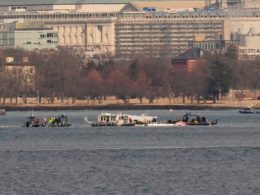Unlock the White House Watch newsletter for free
Your guide to what the 2024 US election means for Washington and the world
This week Donald Trump gave corrupt officials, shady executives and brown envelope manufacturers worldwide a reason to be hopeful. On Monday, the US president signed an executive order to pause the enforcement of the Foreign Corrupt Practices Act — a decades-old law that bars companies and individuals with US links from paying or offering bribes to win business. The White House claims the rule creates an “uneven playing field” for US companies. Plenty of American businesses would disagree.
Doing deals abroad can be a nightmare. Language, regulations and political risk all need navigating. But it is made more uncertain and expensive by authorities and middlemen eager to line their pockets. Wherever there are opportunities to grab dollars, bribes won’t be far off. But by extending the reach of America’s anti-corruption laws abroad — and encouraging other nations to adopt similar rules — the FCPA has at least kept graft in check globally.
In the last decade alone, enforcements of the law by the Department of Justice and Securities and Exchange Commission have resulted in sanctions totalling over $24bn from hundreds of cases, according to the FCPA Clearinghouse, a Stanford Law School database. Where the pay-off could be ascertained, the rule has uncovered at least $11.8bn in bribes. China, Brazil and India are among the most kickback-prone nations, while graft has been most common in the oil and gas and healthcare sectors.
Recent high-profile investigations add to the FCPA’s deterrence effect. In October, US defence contractor RTX agreed to pay more than $950mn partly over claims it bribed a Qatari official to facilitate arms sales. In November, executives indicted for a bribery scheme allegedly involving one of Asia’s richest men, Gautam Adani, were charged with conspiracy to violate the act. The Adani Group denies the allegations. Trump’s six-month pause order could give cases such as this a reprieve.
Over 40 per cent of defendants have been from outside America. (The act was widened in 1998 to foreign firms and persons with US ties.) Indeed, some of the biggest fines have been paid by foreign firms. Europe’s aerospace champion, Airbus, agreed to a €3.6bn penalty in 2020 after a probe into its use of intermediaries to secure global sales.
These actions protect both American and international businesses. They help to lower entry barriers for small and medium-sized enterprises, and prevent deals descending into a free-for-all for the highest bribe. An OECD estimate reckons the average bribe adds around 10 per cent to total transaction values. There’s no escaping that compliance can be burdensome too. Maintaining detailed audit trails is taxing. Investigations can be costly, and sometimes misguided. Improving anti-bribery rules with international partners makes sense. Either way, for many companies it’s a necessary cost, to avoid an even greater one.
Trump’s pause on the FCPA has been badged as an opportunity to review its “overenforcement”. But it would be naive to think that is the only objective. The president laments bribes as “routine business practices in other nations”. The White House also cites critical minerals and ports as strategic US investments that may be impeded by the FCPA.
This all suggests the president thinks American companies should be given a bit more latitude — hardly a surprise, given his quid pro quo style. This week the DoJ also directed prosecutors to drop a corruption case against Eric Adams, which analysts suspect may be an effort by Trump to garner the New York mayor’s support for his immigration agenda.
For now, the FCPA remains on the US law books. But if Trump did weaken its enforcement, he should be careful what he wishes for. He may want a world where US companies can throw their weight around. But instead, international dealmaking could become more like the Wild West. And that benefits nobody.
Source link









